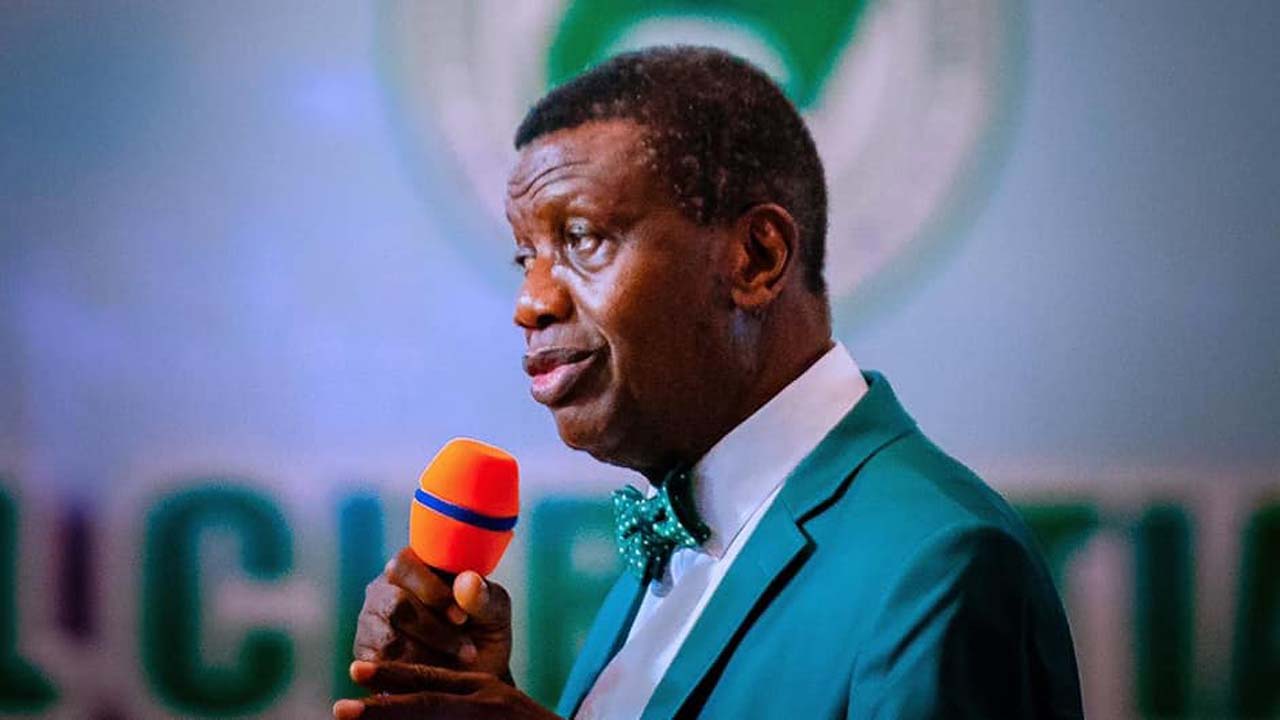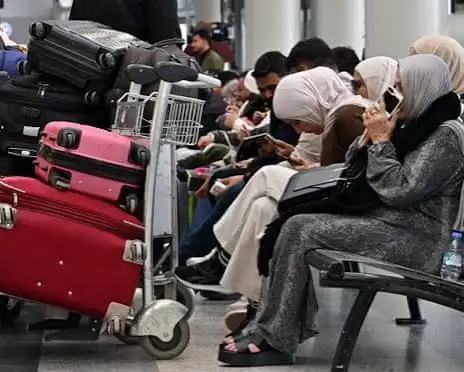A recent video that surfaced online has left the Nigerian public in shock, showing an alleged altercation between Alex Ikwechegh, a member of the House of Representatives, and a Bolt driver, Stephen Abuwatseya. The incident reportedly took place on Sunday in Abuja’s highbrow Maitama district, where the driver had gone to deliver a package of snails to the lawmaker. In the video, Ikwechegh, who represents Aba North and South Federal Constituency (APGA), was visibly enraged, reportedly due to the driver’s request for him to come outside and collect his delivery. The footage has since gone viral, sparking public outcry and discussions surrounding the treatment of service workers and the abuse of power by elected officials.
Breakdown of the Incident: A Case of Power Dynamics?
The video depicts a series of disturbing actions and remarks allegedly made by Ikwechegh towards Abuwatseya. According to the footage, the confrontation began when Abuwatseya, who was delivering a package on behalf of the e-hailing service Bolt, asked the representative to come outside his residence to collect the snails. This request was apparently met with anger, with Ikwechegh allegedly claiming that it was beneath his social status to collect his own delivery. In the video, he reportedly boasted about his position and slapped the driver multiple times while calling him derogatory names, including “rat” and “monkey.”
One of the most alarming moments in the video occurred when Ikwechegh allegedly threatened the driver, saying he could “disappear” him without facing any repercussions. His words reflect a troubling abuse of power, suggesting that as a politician, he has the capacity to sidestep accountability. Phrases like “Do you know who I am?” and “I can make this man disappear in the whole of Nigeria, and nothing will happen,” as quoted from the video, paint a picture of a man who believes himself immune to repercussions due to his position.
Wider Implications: Privilege and the Treatment of Service Workers
This incident has ignited a broader discussion on the treatment of service workers in Nigeria. Drivers, delivery personnel, and other essential service providers often face harsh conditions, low wages, and, occasionally, disrespectful treatment from customers. In this case, Abuwatseya was allegedly subjected to verbal and physical abuse over what many would consider a reasonable request for a customer to come to the gate to retrieve their delivery. The incident underscores the lack of protections for service workers who may face such hostile interactions with powerful clients, raising questions about safety protocols and the need for policies to prevent abuses of this nature.
The backlash to Ikwechegh’s alleged comments, such as his derogatory remarks and threats to “tie up” the driver, also touches on issues of classism and privilege within Nigerian society. The lawmaker’s words suggest a level of entitlement and superiority that runs contrary to the ideals of public service. His actions, if proven true, reflect a disturbing attitude towards individuals he perceives as beneath him, an attitude that many Nigerians feel has no place in a democracy.
Ikwechegh’s Political Background: A Controversial Past
The fallout from this incident is exacerbated by Ikwechegh’s contentious political history. Earlier this year, he gained his current position after a prolonged legal battle regarding his predecessor, Emeka Nnamani of the Labour Party. The National Assembly Election Petition Tribunal ruled in Ikwechegh’s favor, ordering that a certificate of return be issued to him after finding that Nnamani’s election was compromised by certificate forgery. This judgment followed an appeal by Blessing Nwagba, which argued that Nnamani had falsified educational qualifications to participate in the elections.
Interestingly, Ikwechegh himself has faced allegations of misconduct and was previously involved in controversies relating to his political campaigns and personal conduct. His public persona is polarizing; while some view him as a dedicated public servant, others are critical of his political maneuvering and alleged entitlement. This latest incident may amplify these critiques, particularly given the perceived arrogance and disregard for legal and social norms exhibited in the video.
Calls for Accountability and Legal Action
Since the video’s release, public outrage has mounted, with many Nigerians demanding accountability. Citizens are calling for an investigation into Ikwechegh’s actions, with some urging the House of Representatives to impose disciplinary measures if the allegations are verified. Activists argue that incidents like this should not be treated as isolated, stressing that they represent a broader problem of impunity among political figures. For them, Ikwechegh’s alleged statements about his influence over police and ability to “disappear” a citizen without consequence strike at the heart of Nigeria’s political and social issues: a lack of accountability among the powerful.
Reflecting on Past Allegations: A Pattern?
Ikwechegh’s alleged remarks about his power to evade accountability are particularly striking in light of his political rise, marked by persistent controversies. After the tribunal’s ruling on Nnamani’s forged documents, which ultimately disqualified him, there were rumors that the tribunal had imposed a ten-year ban on Nnamani from future elections. Though Nnamani has denied this claim, the controversy underscores a culture of alleged legal breaches among certain political figures. Ikwechegh, despite being the beneficiary of this tribunal decision, now faces questions about his own respect for legal and ethical boundaries, given the recent altercation.
Broader Implications: Social Status and Abuse of Authority
The disturbing nature of the alleged confrontation between Ikwechegh and Abuwatseya is part of a larger pattern of incidents in which public officials and privileged individuals wield their influence over ordinary citizens. Many commentators believe this incident highlights a toxic mix of entitlement and authoritarianism within Nigeria’s political class, as well as a pervasive disregard for the dignity of citizens perceived to be of lower social standing. This issue, critics argue, erodes public trust in elected officials and undermines democracy by perpetuating inequality and fostering a climate of fear among citizens.
While Nigeria is no stranger to discussions about power dynamics, privilege, and abuse of authority, incidents like this serve as stark reminders of the everyday realities faced by those in less powerful positions. For many Nigerians, the alleged remarks about using police or state power to “disappear” someone represent a chilling reminder of the country’s need for systemic reforms to protect citizens from abuses by individuals with influence and authority.
Next Steps and Possible Outcomes
In response to the incident, many Nigerians are calling for specific actions to hold Ikwechegh accountable, potentially including a formal investigation by the House of Representatives. Some have also urged Bolt and other e-hailing companies to improve protections for drivers who may find themselves in vulnerable situations with difficult or abusive customers. Organizations focused on workers’ rights and human rights advocates have also started calling for policies that would safeguard service industry employees from such abuse.
Additionally, if the allegations against Ikwechegh are proven, legal action may be warranted. Assault remains a criminal offense under Nigerian law, and prosecution could serve as a warning to other public officials regarding the consequences of abusing their power. Some members of the Nigerian public hope that if Ikwechegh faces penalties for his actions, it might contribute to a shift towards greater accountability within the political class.
Final Thoughts: A Moment for Reflection
The incident involving Alex Ikwechegh and Stephen Abuwatseya shines a harsh light on issues of privilege, entitlement, and the abuse of authority. As Nigerians continue to react to the video, this moment also serves as a call to action. Will this scandal lead to meaningful changes in the way Nigeria’s public officials are held accountable? Only time will tell, but the public outcry demonstrates a clear demand for transparency, respect, and dignity in the treatment of all citizens, regardless of status or position.









I think the driver provoked the attack by not following the delivery protocol. He should take responsibility too.
You cant blame the victim for the attackers actions. Victim blaming is never okay.
I think the Bolt driver provoked the House Representative. Lets not jump to conclusions without knowing the full story.
I think theres more to this story than meets the eye. Maybe the driver provoked the representative. Lets not jump to conclusions.
I think were missing the bigger picture here. Shouldnt we be focusing on the drivers role in escalating the situation?
I think people are too quick to judge without knowing the full story. Lets wait for all the facts before jumping to conclusions.
Mind your own business. Judging is human nature. We dont need all the facts.
I cant believe people are defending Ikwechegh for attacking the Bolt driver. No excuse for violence, no matter who you are.
I cant believe some people are defending Ikwechegh. Assault is assault, no matter the circumstances. Zero tolerance for violence!
This is just another case of a powerful person abusing their position. Disgusting behavior! No excuses for violence.
I think we need to hear both sides before jumping to conclusions. Maybe the driver provoked the representative?
I think we should hear both sides before jumping to conclusions. Maybe theres more to this story than meets the eye.
@Reader123: True, but lets not dismiss red flags. Sometimes the truth is right in front of us.
This article is biased! We dont know the full story. Always two sides to a coin. Lets not jump to conclusions.
Sometimes the truth is clear. Dont always need both sides to see bias.
Can we trust our leaders if they cant even respect delivery drivers? Disgraceful behavior from Alex Ikwechegh. Time for accountability!
Why do some politicians think they can get away with violence? Its disgraceful and sets a bad example for society.
Can we trust our leaders if they cant even handle a simple delivery without resorting to violence? Disappointing behavior.
Can we trust our lawmakers if they resort to violence over minor issues like delivery protocols? Where is the accountability?
This is outrageous! How can a lawmaker act like this? Are they above the law? Justice must be served!